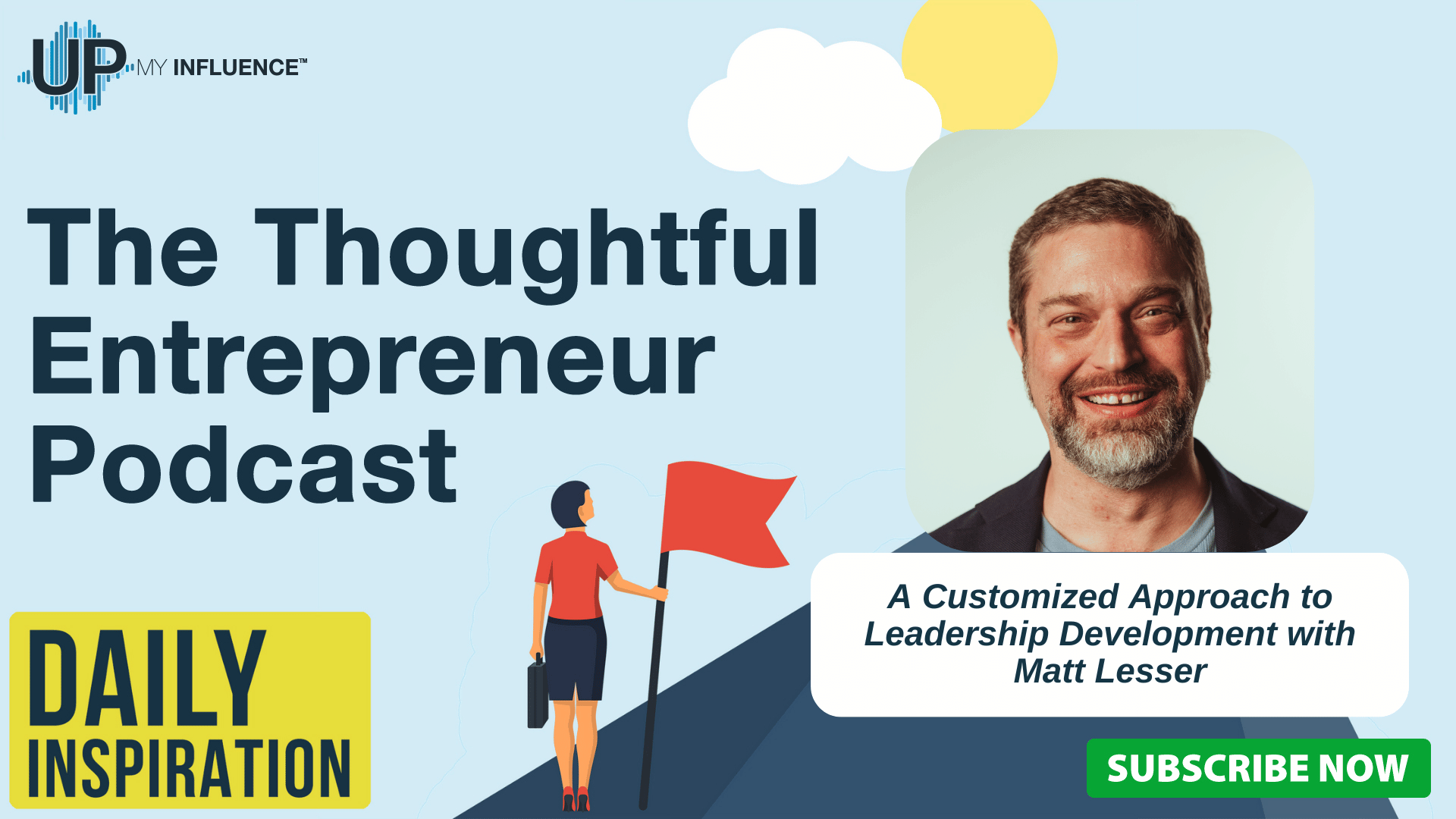THE THOUGHTFUL ENTREPRENEUR PODCAST
In this episode of the Thoughtful Entrepreneur, your host Josh Elledge speaks with the Founder of Uniquely Normal, LLC, Matt Lesser.

Matt's approach to leadership development is as unique as the organizations he works with. He tailors his strategies based on the specific needs of each organization, whether it's conflict management, communication, or other areas.
Matt's work isn't limited to individual leaders; he extends his expertise to the entire organization. He provides executive coaching to senior leaders or teams and plays a crucial role in developing new organizational leaders.
Matt's new book, “Unengaged: Building Flourishing Organizations,” is a treasure trove of practical guidance for leaders. It explores three pillars of building a flourishing organization: empathy, empowerment, and excellence.
Regarding empathy, Matt can't stress enough the importance of genuinely knowing and understanding people. He encourages leaders to take a relational approach rather than a transactional one. According to Matt, sharing stories is a great starting point as it opens the door to a person's heart.
Matt believes leaders who embrace empathy, empowerment, and equipping their teams will have lower turnover and engagement issues than those who do not prioritize these aspects.
Key Points from the Episode:
- Introduction of Matt Lesser, founder of Uniquely Normal and author of two books
- Matt's work with family businesses and focus on leadership development
- Matt's approach to working with individual leaders and the entire organization
- Discussion of Matt's new book, “Unengaged: Building Flourishing Organizations“
- Exploration of the three pillars of building a flourishing organization: empathy, empowerment, and excellence
- Emphasis on the importance of empathy and understanding in leadership
- Discussion on effectively communicating sensitive information within an organization
- The importance of empowering employees and allowing them to do their job
- Addressing employee concerns and taking action based on feedback
About Matt Lesser:
Matt Lesser, a resilient entrepreneur and seasoned executive, initially faced adversity when his family business faltered, leading him into a dark period of suicidal depression.
Rising from this setback, he founded a successful company that expanded from three to nearly two hundred employees, experiencing a remarkable twenty-fold increase in revenue before a strategic sale to trusted competitors.
With a twelve-year tenure in private equity C-Suite roles and subsequent transitional roles in banking and commercial uniforms, Lesser accumulated a wealth of experience.
In 2021, he established Uniquely Normal, LLC, empowering leaders to address people-related challenges through empathy, empowerment, and excellence. A bestselling author with “unSatisfied: When Less is More,” Lesser is also a certified executive coach adept in numerous personality, preference, and leadership assessments.
He has been a sought-after keynote speaker and facilitator for over two decades, engaging leaders globally. His upcoming book, “unEngaged: Building Flourishing Organizations,” is slated for release on October 24, 2023. Matt, who married his elementary school sweetheart in 1996, resides in northeast Indiana with his family.
About Uniquely Normal, LLC:
Uniquely Normal, LLC addresses workforce management challenges, offering a comprehensive solution to concerns such as high turnover, low engagement, and productivity issues. Specializing in equipping leaders and leadership teams, the company provides practical tools, training, coaching, and resources.
By fostering the intentional development of team members, Uniquely Normal aims to transform organizations into flourishing entities.
The approach yields tangible benefits, including a significant reduction in turnover, heightened engagement and productivity, efficient filling of open positions, and a notable increase in commitment and loyalty.
The Uniquely Normal team employs proven practices and practical applications, focusing on three core principles: empathy, empowerment, and excellence.
By intentionally integrating these principles, leaders and teams are equipped to build and sustain flourishing organizations. Uniquely Normal, LLC, thus, serves as a valuable partner for businesses seeking to enhance their team dynamics and overall organizational success.
Tweetable Moments:
08:08 – “Once you see a person's heart, you will not view that person the same way again.”
Apply to be a Guest on The Thoughtful Entrepreneur:
https://go.upmyinfluence.com/podcast-guest
Links Mentioned in this Episode:
Want to learn more? Check out Uniquely Normal, LLC website at
https://www.uniquelynormal.com/
Check out Uniquely Normal, LLC on LinkedIn at
https://www.linkedin.com/company/uniquely-normal-llc/
Check out Matt Lesser on Facebook at
https://www.facebook.com/deb.crowe/
Check out Matt Lesser on LinkedIn at
https://www.linkedin.com/in/matthew-lesser/
Check out Matt Lesser 2nd New book: unEngaged: Building Flourishing Organizations at
https://www.amazon.com/unEngaged-Flourishing-Organizations-Matthew-Lesser/dp/1955026858
More from UpMyInfluence:
We are actively booking guests for our The Thoughtful Entrepreneur. Schedule HERE.
Are you a 6-figure consultant? I’ve got high-level intros for you. Learn more here.
What is your #1 Lead Generation BLOCKER? Take my free quiz here.
Want to learn more about all the podcasts managed by UpMyInfluence? Opt in here.

